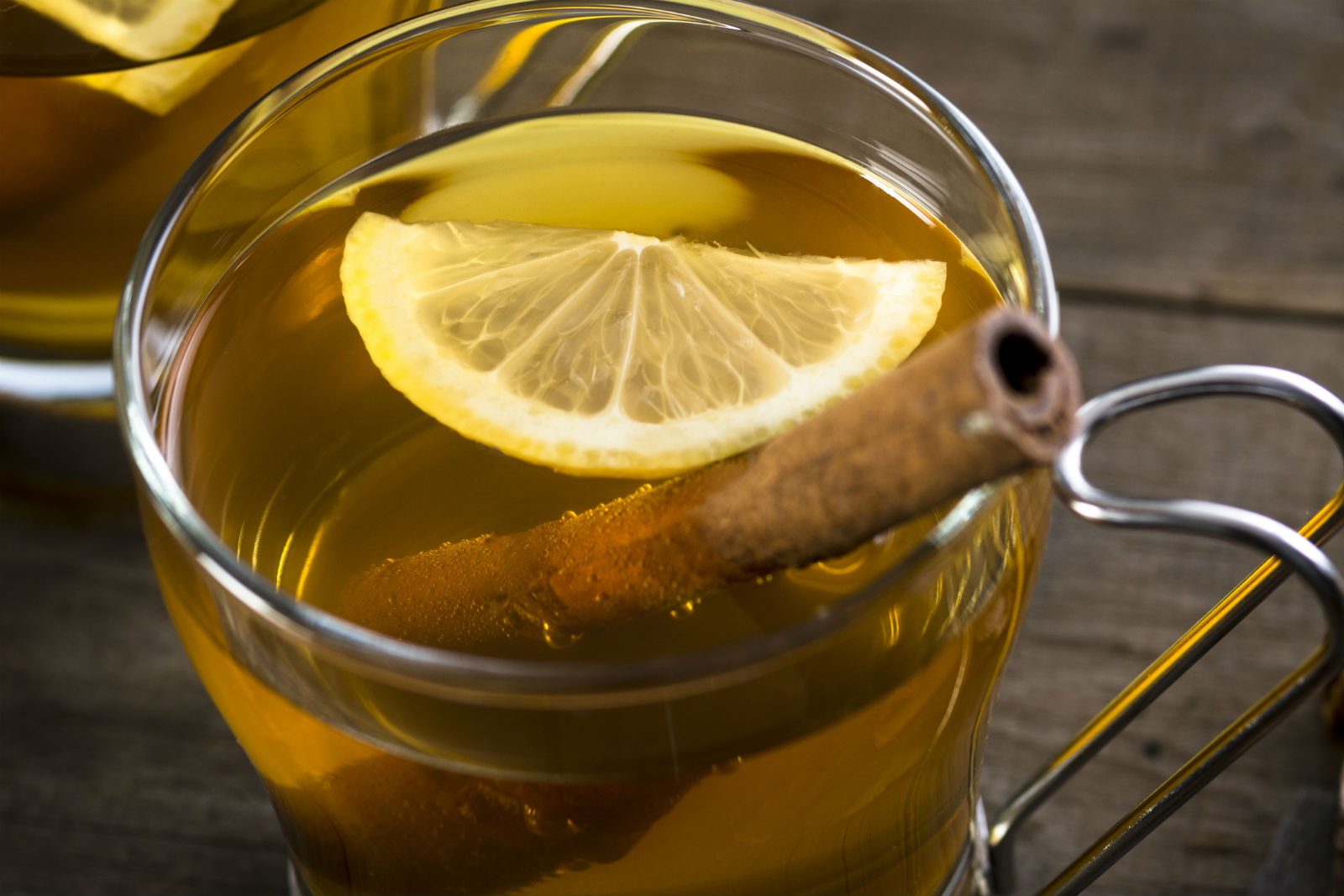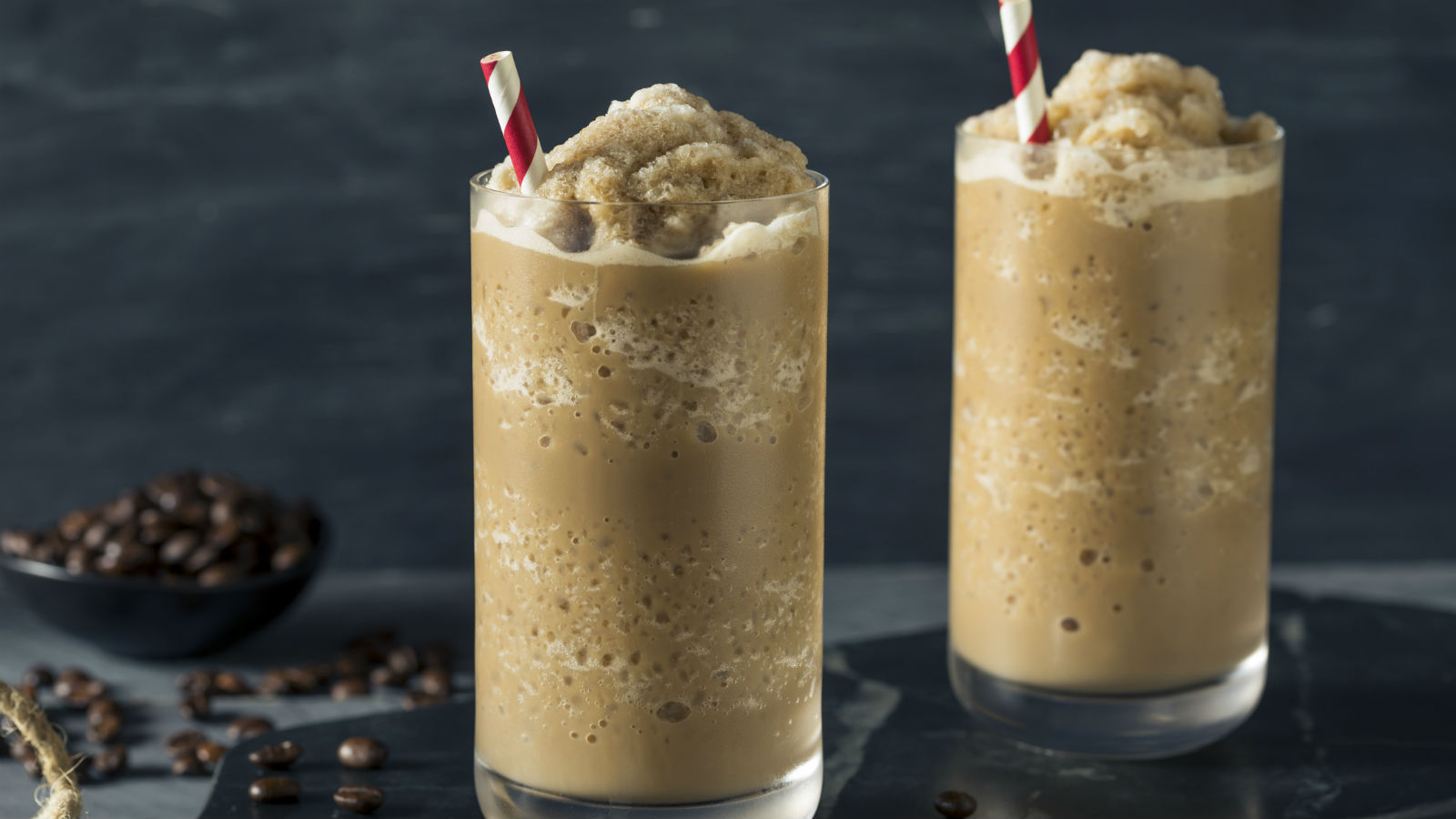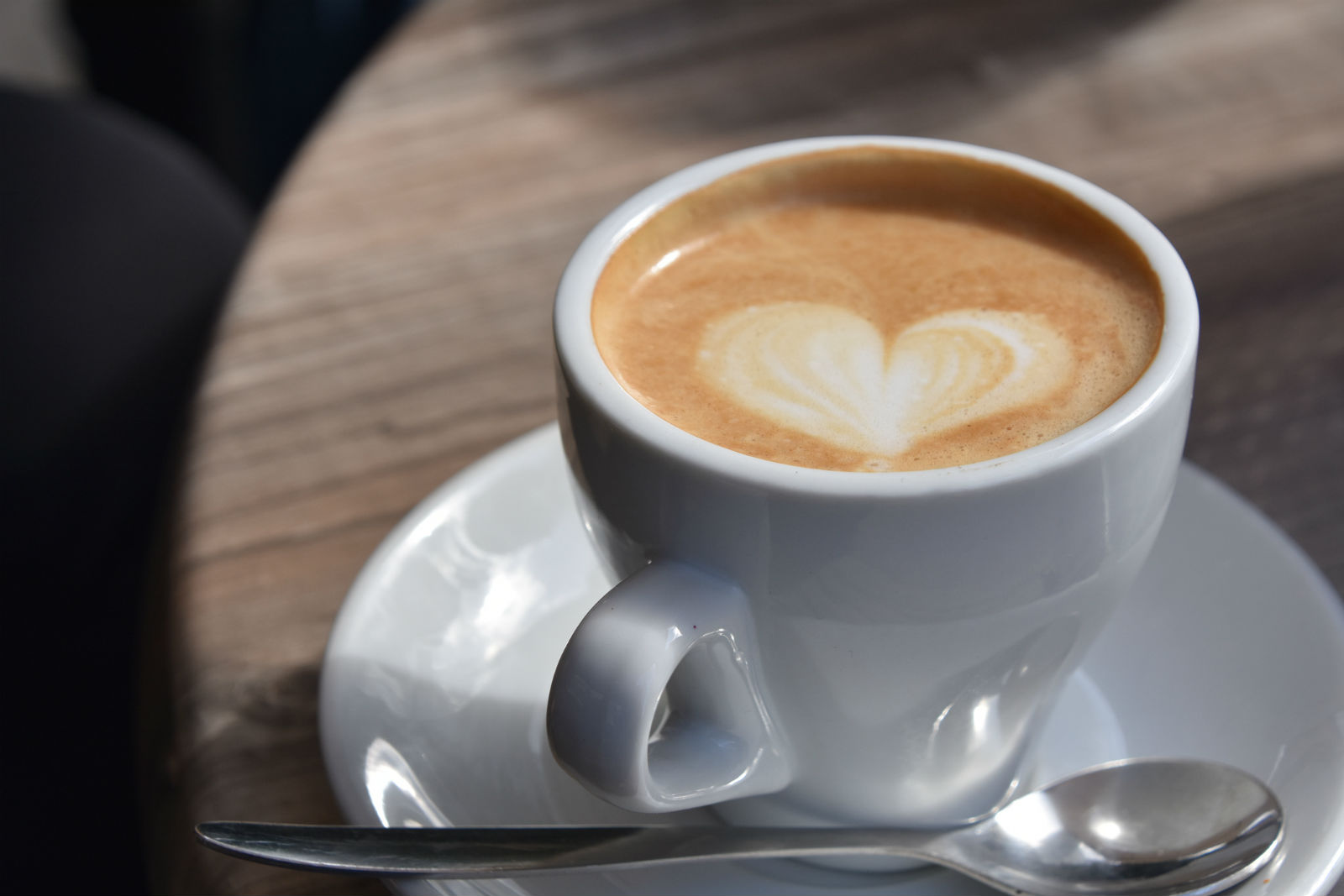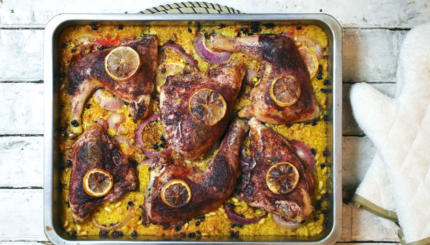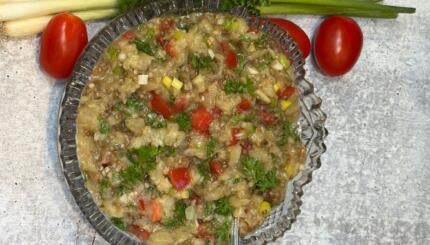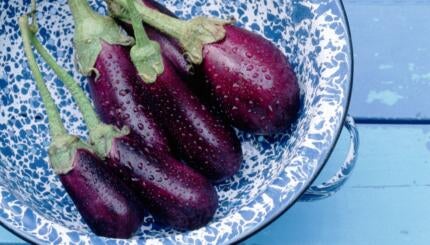Think you know everything there is to know about coffee? Perhaps you are a latte art competition-winning connoisseur, or just a straight-up caffeine addict? Well your world is about to be turned upside down (you’ll get the joke in a minute) because ordering a coffee in Israel is actually a bit different than other places around the world.
Learn the proper Hebrew (or English in Hebrew) terms for what you’re looking for, and find out about the coffees you’ve just got to try. And please, do take your time. Israeli coffee shops are considered local hang-outs — unlike many places in America, you can park your bum in that chair all day and never get up if you don’t want to. Take your time and find your favorite local café, then use this list to guide you through the menu.
Cafe Hafuch
Translating to “upside down coffee” in Hebrew, this is one of the most common coffees you will find in Israel. Essentially, it’s a latte — espresso base, warm foamy milk and all — just with its own cute little name. You’re in Israel now, and everything is probably going to feel upside down and backwards to you (the initial culture shock is real), so you might as well start out your morning coffee this way.
The Nosher celebrates the traditions and recipes that have brought Jews together for centuries. Donate today to keep The Nosher's stories and recipes accessible to all.
Ice Cafe
Ready for a riddle? Iced coffee in Israel is code for Frappuccino — it’s cold coffee already mixed with milk, sugar, and ice. So don’t fret when you’re unexpectedly presented with a coffee slushie, which is also known as “barad,” Hebrew for hail — pretty ironic for a country where it hails maybe once a year at best.
Cold Coffee (Cafe Kar)
If you’re an iced coffee drinker in America, then the closest you’ll find in Israel will be a cold coffee, or cafe kar, which is essentially an iced latte (you won’t find standard drip coffee or cold brew in Israel). Now that we’ve cleared that up, and you’ve successfully sucked down your ice-cold espresso with a splash of 3% (say, what!?) Israeli milk, you should be ready to tackle the day.
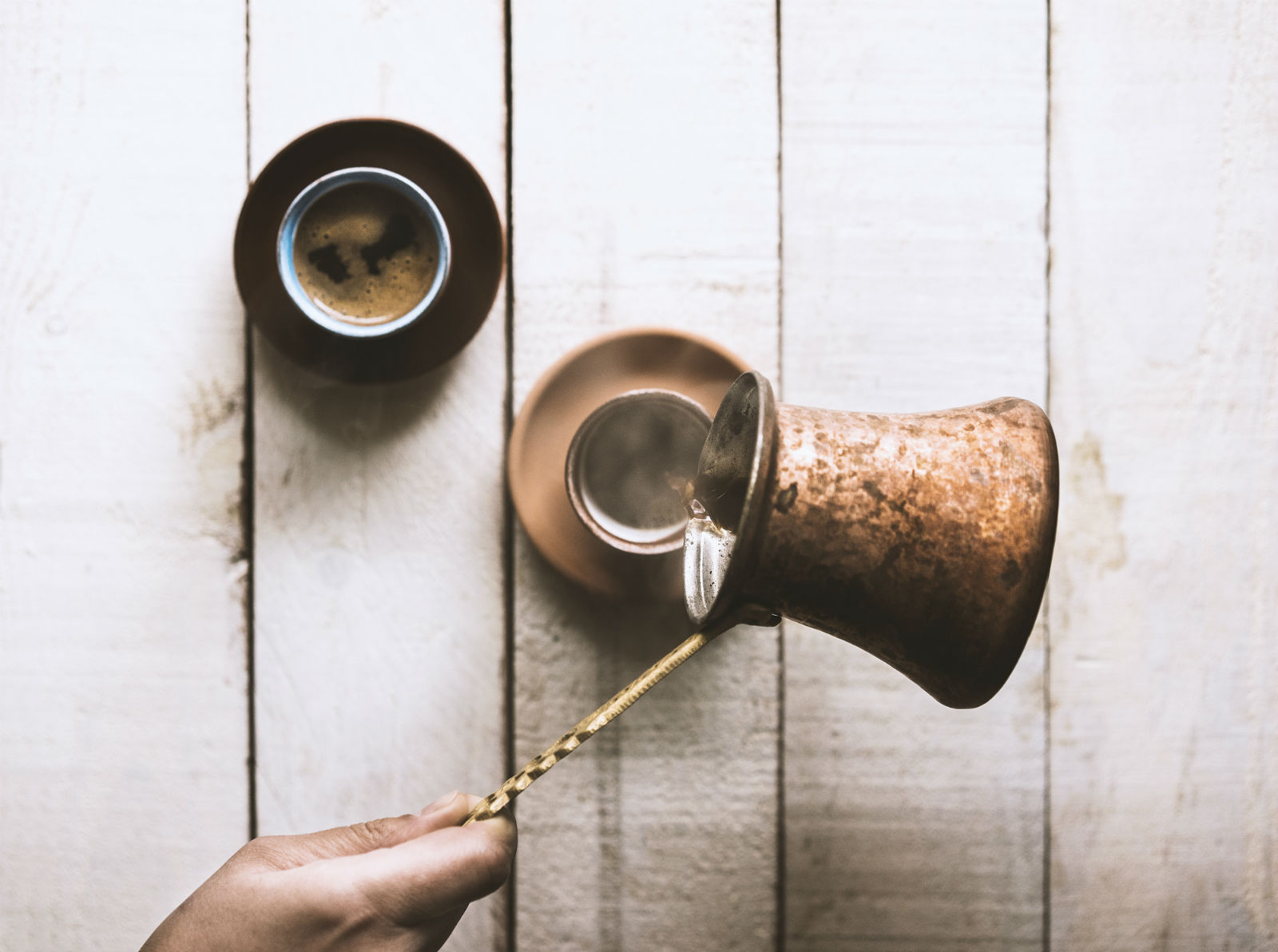
Turkish coffee (Cafe Turki)
Ah, Turkish coffee, also known by its many other names — Arabic coffee, black coffee, and mud coffee (we’ll get to that in a second) to name a few. This is the wake-up call you are looking for when you need to pull an all-nighter at a Tel Aviv club, or recover from your jet lag. This is the super strong dark-roasted espresso-like grinds that soldiers rely on to keep their eyes open. Yep, everyone is fueled by the stuff. Helpful hint: its slightly lemony character could be attributed to an addition of ground cardamom, especially if you’re in the north.
Now for the really helpful hint: This coffee is made with baby fine grinds either stirred directly into a cup of hot water or cooked directly in the water on the stove top, so you must wait a minute or two before drinking it. If you don’t let it rest you are likely to get a mouth full of coffee grinds. Same goes for the bottom layer in the glass, or the “mud” that has settled there (now you get the name!). Don’t drink this bottom layer — but it is common practice to have your cafe companion “read’ the grinds as a type of fortune telling.
Nes Cafe
“Nes” in Hebrew means miracle, because isn’t is just straight from heaven that this finely ground freeze-dried coffee manages to melt completely into water (even at room temperature)? In truth, this is only partly how the coffee got its name — the original stuff was Nestle brand. The most common nes cafe in Israel is the Israeli Elite brand, and it is indeed quite a miracle how technology and time has managed to produce an instant coffee powder that actually tastes good.
Nes al Chalav
This one is for coffee novices looking to fit in at the coffee shop, minus the mind-altering jolt. Nes al Chalav directly translates to “instant coffee on milk,” as in a sprinkling of instant coffee over your hot milk. No, we’re not joking… it’s totally a thing. We’ve just never actually seen anyone order it…
Cappuccino
Similar to cafe hafuch, but with a little bit more foamy whole Israeli milk in the mix, cappuccinos may be on the menu, but they’re pretty rarely ordered.
Chocolata
If you are a chocolate lover, we definitely recommend trying this warm, sinfully rich, chocolatey sludge which is similar to a Spanish hot chocolate in its thickness. Besides, when else will you have permission to basically drink chocolate sauce?!
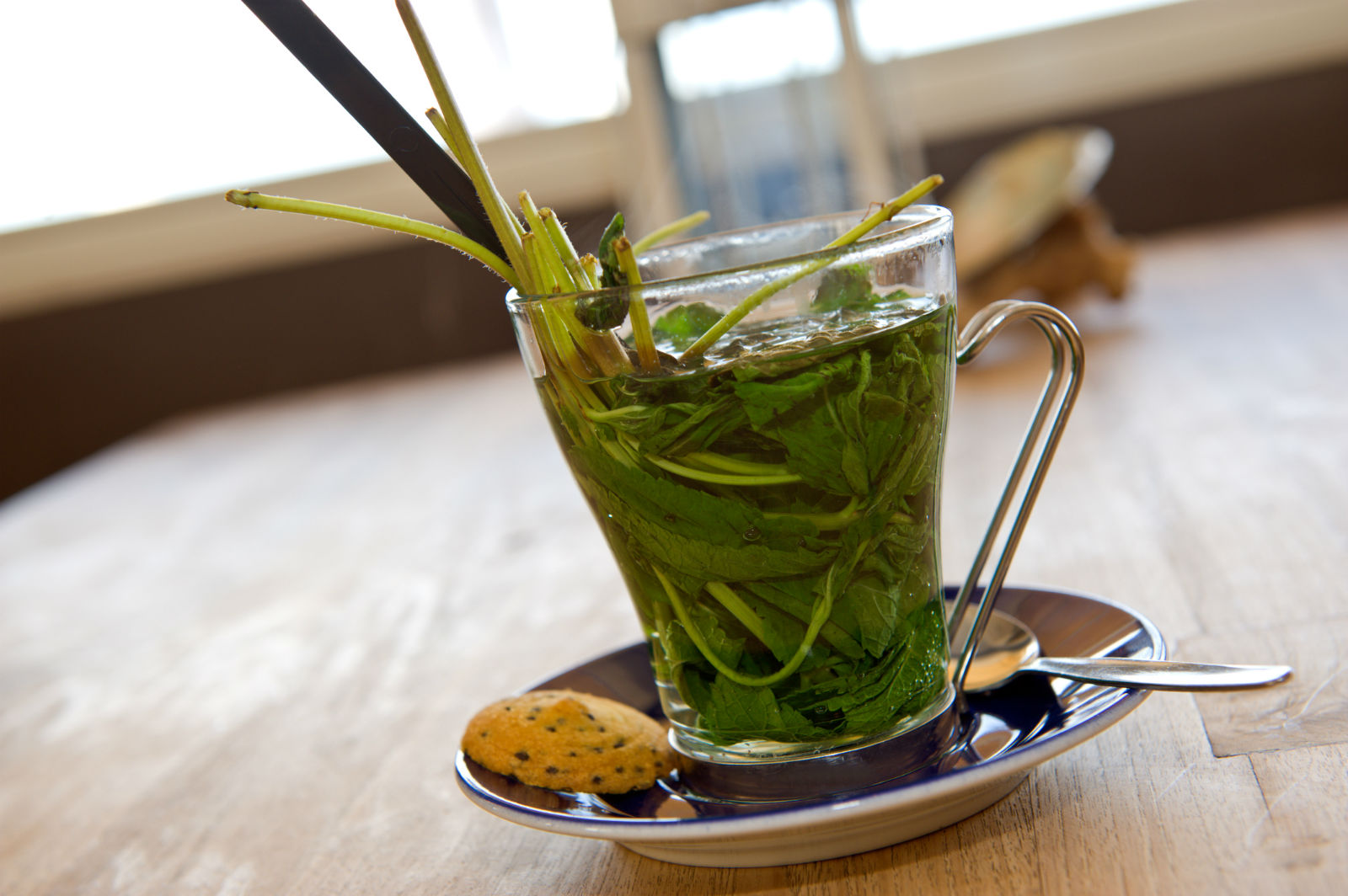
Nana Tea
A lesser-known but very popular Israeli past-time is picking fragrant wild herbs for tea. Whether from the side of a parking lot or the vast nature during a hike, we just can’t get enough. Nana (Mediterranean spearmint) is one of the most common herbs to find at a cafe. You may also come across sage, lemon grass, and even fresh za’atar steeped together in hot water. These fresh herbal teas are comforting and delicious. Plus you’ll feel kind of healthy after you drink it.
Cider Cham
Also known as hot spiced cider, bonus points are awarded to the hard-working barista if this is made with freshly juiced apples, as it should be. It’s the perfect treat for when you’re looking to hydrate in style when meeting someone for coffee on a cold day, or if you’re just feeling a bit fancy (nothing fancier than a cinnamon stick in your glass, am I right?).
